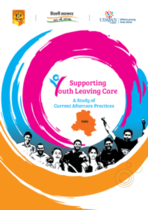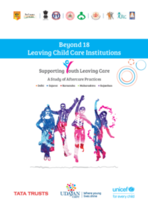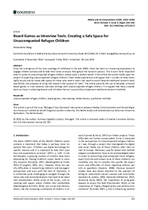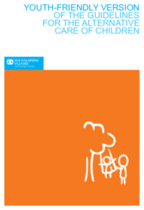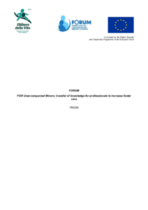Supporting Youth Leaving Care: Current Aftercare Practices in Delhi
“Current Aftercare Practices” (CAP) is a research study designed to look at the support and services received by Care Leavers (CLs) from the objective lens of an ‘Aftercare Quality Index’(AQI), calculated by using the scores within eight domains. This report covers a total of 55 CLs from Delhi, comprising of 30 males and 25 females, from both Government and NGO-run Child Care Institutions (CCIs). It also includes data from 10 stakeholders, which includes experts, practitioners and duty bearers, working in the field of child protection in Delhi.

